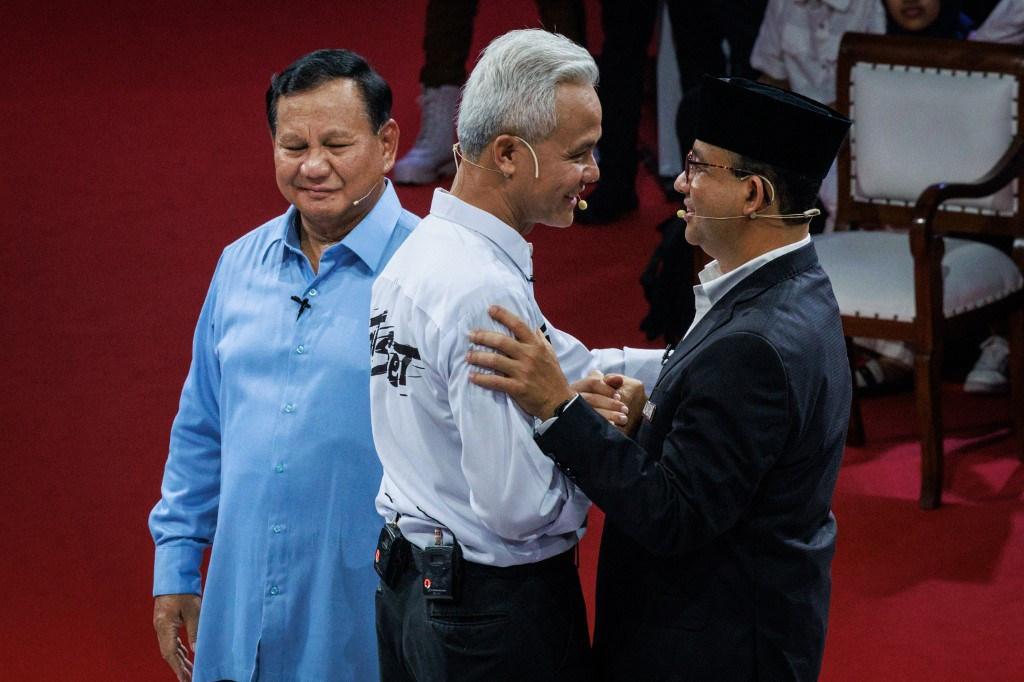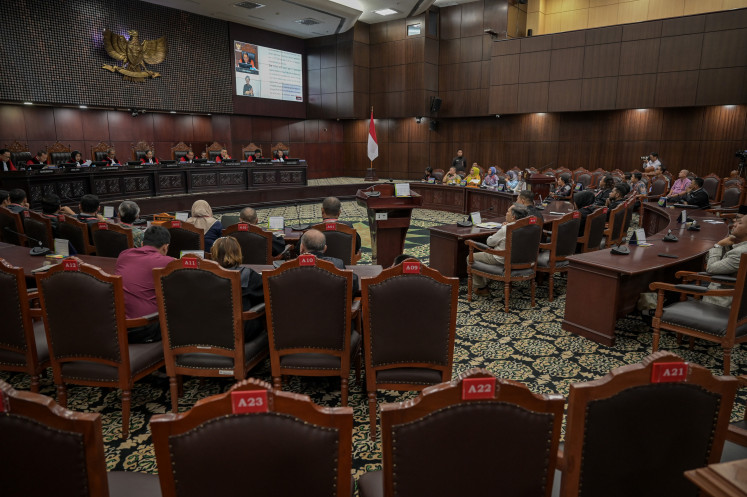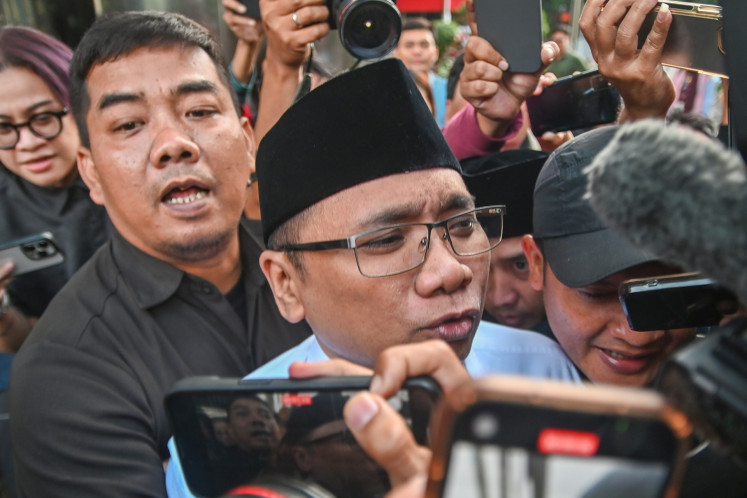Popular Reads
Top Results
Can't find what you're looking for?
View all search resultsPopular Reads
Top Results
Can't find what you're looking for?
View all search resultsAnies, Ganjar zero in on MK ruling in first presidential debate
In the first of five televised debates ahead of next February's elections, candidates faced questions on law, governance, human rights and rising corruption in Indonesia.
Change text size
Gift Premium Articles
to Anyone

Three presidential hopefuls faced off in the first election debate on Tuesday, with two candidates slamming a court decision that enabled the president's eldest son to join the leading ticket.
In the first of five televised debates ahead of next February's elections, candidates faced questions on law, governance, human rights and rising corruption in Indonesia.
They sparred over a recent court ruling that changed the age requirements for candidates, effectively paving the way for President Joko "Jokowi" Widodo's 36-year-old son to be named as the vice-presidential candidate of Defence Minister Prabowo Subianto, the frontrunner.
"Many regulations have been bent according to the interests of those in power," said presidential candidate and former Jakarta governor Anies Baswedan, in his opening statement.
"There is one millennial who could be vice president, but there are thousands of other millennials, Gen Z, who care about the nation that are marginalised," he said."When they criticise the government instead they face violence, even tear gas."
The former governor said trust in the country's democracy had dropped, with diminishing room for free speech and political opposition.

The October court ruling sparked fears about a democratic backslide and a return to the nepotism and patronage politics that characterised the decades-long rule of former president Suharto, who was forced from power in 1998.
In a statement, Prabowo appeared to allude to possible judicial interference, telling his fellow candidate former central Java governor Ganjar Pranowo; "We are no longer children, the public is smart, the public knows, Ganjar. We know the process, who did the intervention, but the point is we need to enforce the constitution."
Prabowo, a former special forces commander and ex-son-in-law of Suharto, has secured a commanding lead, with several recent surveys showing he is 20 points ahead of his two opponents.
Describing voters as the highest judge, Prabowo said it was ultimately up to the public to decide.
"If we are at fault, if we have betrayed people, then it is the people who will punish us," he said.
Prabowo was also questioned about his alleged involvement in the kidnapping of 13 student activists in 1998, claims that he always denied.
"The fact is those people who were once arrested, the political prisoners, those which many people said had been kidnapped by me, now they are on my side," he said.
Ganjar, who has focused his campaign at the grassroots, said public services needed to be prioritised, and called for state losses from corruption to be used for the public good.
"Based on data from Indonesia Corruption Watch, state losses over the past 10 years have reached around 230 trillion rupiah ($14.73 billion). This number equals what we need to build 27,000 community health centers," he said.
On the restive eastern region of Papua where separatists have fought a decades-long insurgency, Prabowo accused foreign powers of meddling and said he would continue Widodo's policies.
"We see foreign interference there," he said.
"My plan is to uphold the law, strengthen apparatuses there and accelerate economic development."
Anies countered that the "main problem is the lack of justice" in the breakaway region where Indonesian forces are battling guerrillas.
"The goal is not to merely eliminate violence, because peace is not absence of violence. Peace is the presence of justice," he said.
Ganjar later asked Prabowo about alleged abuses while he was in the military in the late 1990s, including ordering the kidnapping of democracy activists.
"I already answered multiple times. I feel that I'm really hard to defend human rights. So... don't politicise that," the Defense Minister said.
There will be four more debates before election day.










